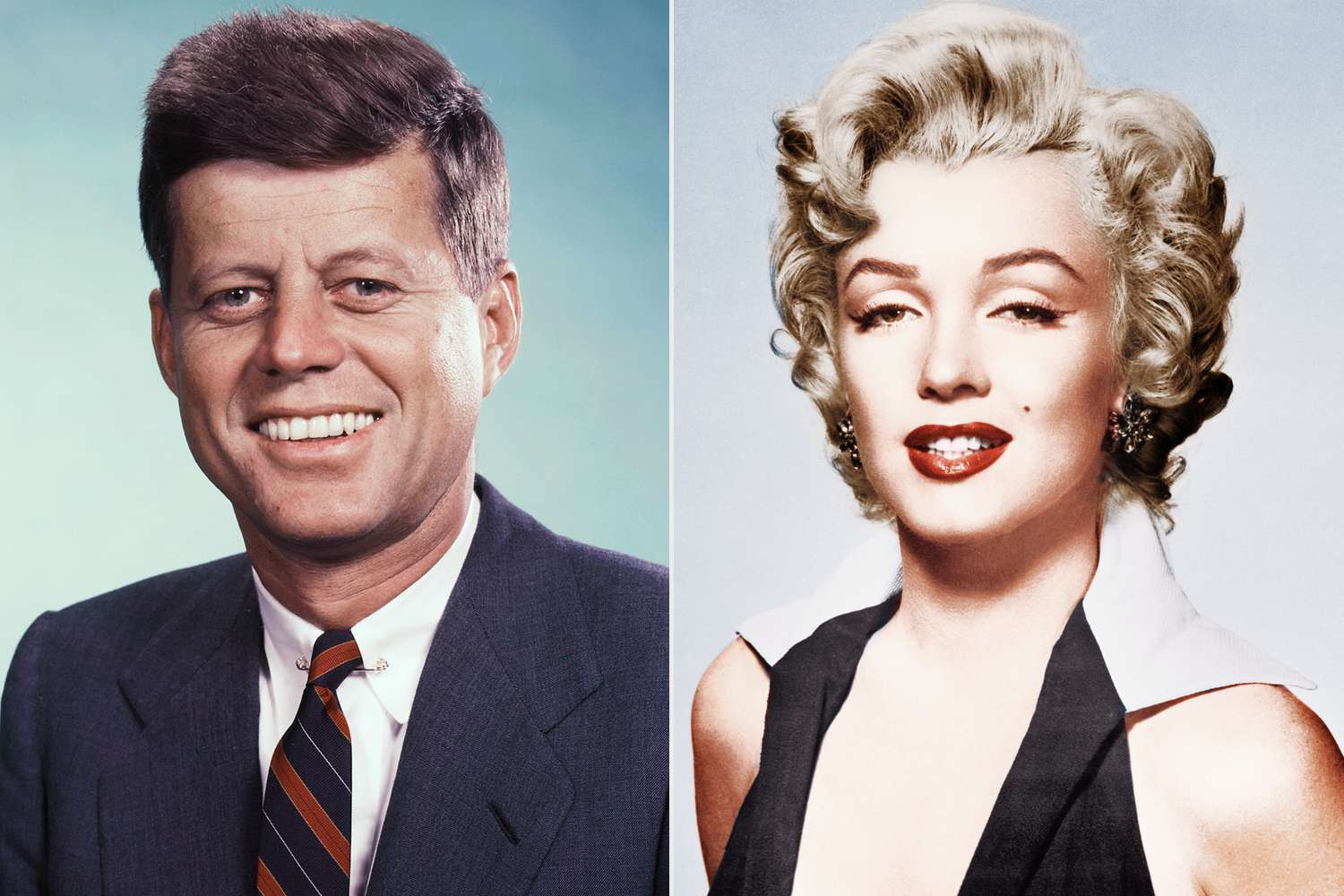The Mysterious Death of Marilyn Monroe
Marilyn Monroe, the iconic Hollywood actress, tragically passed away at the age of 36 on August 5, 1962, due to a fatal barbiturate overdose.
While her death was officially ruled as a “probable suicide” by the Los Angeles County coroner's office, there has been ongoing speculation surrounding the circumstances of her untimely demise.
Many have questioned whether her alleged relationships with President John F. Kennedy and his brother Attorney General Robert F. Kennedy played a role in her tragic end.
Monroe's personal life was tumultuous before her death, having gone through three divorces.
It is widely believed that she was involved in affairs with both Kennedy brothers, and there were reports that she was planning to hold a press conference to reveal details about these relationships.
Rumors of Monroe's alleged affair with JFK were fueled by her sultry performance of “Happy Birthday” for the president at his 45th birthday celebration in May 1962, just months before her passing.
A rare photograph taken after the performance at a party hosted by movie executive Arthur Krim captured Monroe alongside either Kennedy brother, making it the only known image of them together.
The photographer, Cecil Stoughton, kept the photo hidden for several decades before releasing it in 2010.
Her biographer, James Spada, described Monroe's death as one of the great mysteries of the 20th century, acknowledging that while there may not be concrete evidence of the Kennedys' involvement in her death, it was clear that she had intimate relations with both Bobby and Jack.
According to Spada, Monroe was introduced to JFK by actor Peter Lawford in 1954.
When Kennedy lost interest in her, he allegedly passed her on to his brother in the spring of 1962.
Witnesses claim to have heard a disturbing tape from Monroe's bugged home on the night of her death, featuring the voices of Lawford, an enraged Bobby, and a distressed Monroe.
In a 1983 interview with Monroe's former housekeeper, Eunice Murray, biographer Anthony Summers uncovered a revelation.
Murray expressed frustration, saying, “Of course Bobby Kennedy was there [on August 4], and of course, there was an affair with Bobby Kennedy.”
Murray's statement added weight to the theory that the Kennedys were involved in Monroe's demise.
A so-called suicide squad was formed to investigate Monroe's death, but it failed to interview key individuals such as Murray, Pat Newcomb (Monroe's publicist), Lawford, or any members of the Kennedy family.
Summers criticized both the forensic work and police investigations, deeming them flawed.
The suspicions surrounding the Kennedys' involvement escalated when Newcomb, who had never definitively spoken about Monroe's death, was relocated to the Kennedy compound in Hyannis Port.
Six months later, she was given a prominent position in the U.S. Information Agency in Washington, D.C.
Spada believed that a cover-up related to the Kennedys was undoubtedly orchestrated.
He argued that the president's reputation could have been jeopardized if Monroe's intimate involvement with the family had been exposed.
However, Tony Oppedisano, a friend of Frank Sinatra and former road manager, stated that Monroe was unlikely to have pursued a relationship that would have threatened the president's marriage.
Journalist Seymour Hersh delved into Monroe's rumored affair with JFK in his book “The Dark Side of Camelot” (1997).
He emphasized the actress's mental instability as a constant threat to the president before her mysterious overdose.
Jerry Blaine, a former Secret Service agent in the Kennedy detail, revealed that he was present during two encounters between JFK and Monroe.
One occurred at Lawford's Santa Monica home in 1961, while the other took place at the New York party following her iconic “Happy Birthday” performance.
Blaine stated that he never witnessed evidence of an affair but admitted uncertainty about what transpired behind closed doors.
Monroe's second husband, Joe DiMaggio, held the Kennedys responsible for her death.
According to Dr. Rock Positano, co-author of “Dinner with DiMaggio: Memories of an American Hero,” DiMaggio believed that the Kennedys were “lady-killers” who would escape accountability.
He stated that Monroe had expressed concerns about her safety, but he chose not to publicly expose the truth.
A Netflix documentary released in 2022, “The Mystery of Marilyn Monroe: The Unheard Tapes,” featured previously unreleased recordings of interviews conducted by investigative journalist Anthony Summers.
These interviews challenged the prevailing narrative surrounding Monroe's final night.
Several sources claimed that RFK visited her Los Angeles home on August 4, hours before her death, in an attempt to end their affair.
The visit allegedly resulted in a heated argument, as reported by individuals involved in the alleged wiretap operation at Monroe's house.
While the mystery surrounding Monroe's death may remain unresolved, Summers concluded in the documentary that there was a deliberate cover-up of the circumstances surrounding her demise.
He suggested that this cover-up was motivated by her connection to the Kennedy brothers.
Nonetheless, Summers maintained that there is no substantial evidence to support the notion that Monroe was murdered.
The complex web of relationships between Monroe, JFK, and Bobby Kennedy continues to captivate public interest.
The tragic story of Marilyn Monroe, an enduring legend of the silver screen, raises more questions than answers about the events leading to her untimely death.
Related Posts
- The Most Chilling Moment in ‘Blonde’: Marilyn Monroe’s Encounter with JFK
- The Iconic Moment: Marilyn Monroe’s Performance for JFK and RFK
- Shocking Revelations: Marilyn Monroe’s Alleged Affair with JFK Unveiled
- Outrage Over Marilyn Monroe and JFK Portrayal in “Blonde”
- Mob Connections: Gianni Russo Reveals Insights on JFK and Marilyn Monroe































